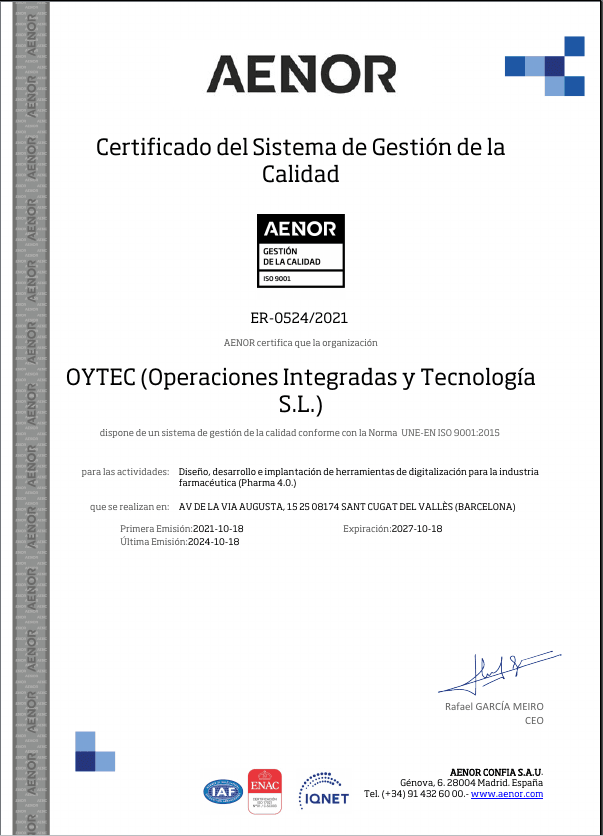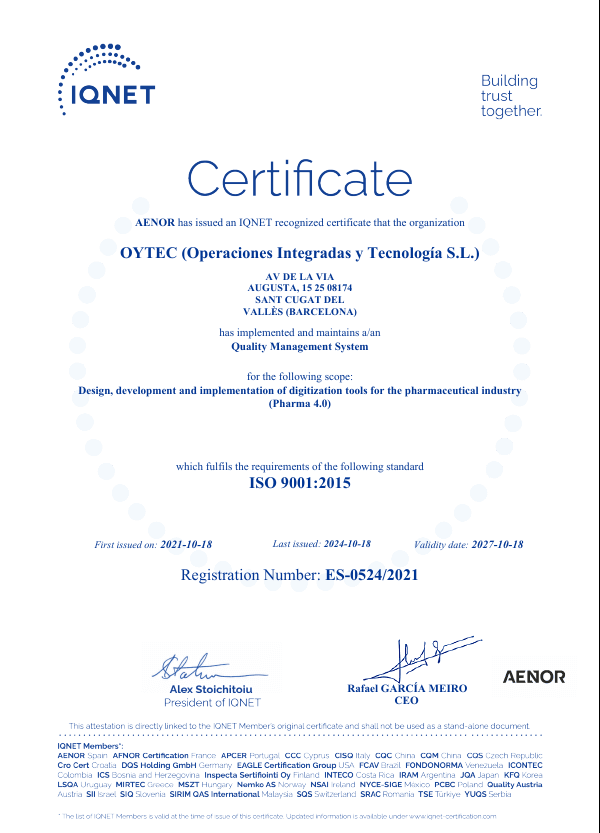MES SOLUTIONS FOR FACTORY
The implementation of an MES solution for the integrated management of factory production represents a strategic decision that requires the direct involvement of the general management given its impact on the policies and procedures that govern the company. Given the breadth of problems that MES systems solve, it is difficult to find a factory department that will not be affected once the decision to implement it has been made. It is this transversality that confers and determines it as a unified factory strategy.
Today we find an infinite number of plants managed with different systems, built to solve specific problems, generally of specific departments. In many cases, incompatible systems that present disparate information on variables and operations that should be common. This makes it very difficult to have visibility of factory operations. We spend a lot of time collecting and building information to make decisions, and once we make them, we don’t have the right tools to establish continuous improvement strategies.
MES systems represent a truly unified factory strategy. A common platform for information management, designed to help people make decisions and to fuel continuous improvement and teamwork. From the interactive management of manufacturing orders, an exhaustive follow-up of materials, the control of in-process IPC sampling, the OEE analysis of the different equipment, among others, managed in a unified way. All integrated with ERP and automation systems.
There are numerous studies that determine the ROI associated with the implementation of an MES solution. In general, all of them determine similar values in certain variables that are listed below:
Lead time reduction: Between 22% and 32%.
- Cycle time reduction: Between 35% and 45%.
Reduction of data entry time: Between 36% and 75%.
Reduction of WIP inventory: Between 17% and 32%.
- Defect ratio reduction: Between 15% and 22%.

